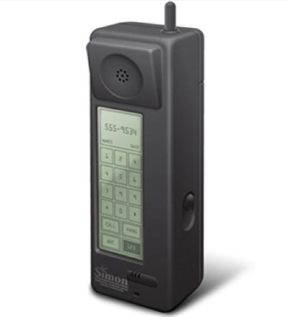sales
Do you really need sales enablement?
Sales enablement is a like a smart phone.
Do you remember when smart phones first hit the market? At the time, a lot of people didn’t really see the value in switching to a smart phone. They thought landlines or basic cell phones were sufficient for their needs.
However, once they experienced the difference smart phones made in their lives, their perspective about smart phones changed from “they’re nice to have” to “I can’t imagine life without one.”
So think of sales enablement like a smart phone. Yes, you can get by without it, but as more and more people jump on the sales enablement bandwagon, it’s hard to keep up with traditional selling methods.

Source: Forbes
To continue the analogy, let’s look at the evolution of the smart phone. Many people consider the first smartphone to be IBM’s Simon Personal Communicator.
When Simon was first unveiled in 1994, it was a game changer. Not only could it make phone calls from anywhere, but it could also check emails, send or receive faxes, check calendar, write notes on a touch sensitive screen… The works!
Today, if someone were describing a smart phone and those were the highlighted features, you’d probably laugh. The technology has evolved far beyond that.
Here’s what it all comes down to:
If you’re questioning whether or not sales enablement is really worth it, you might want to reevaluate how you’re viewing sales enablement. Is your sales enablement definition stuck in the past, focused on what sales enablement meant 10, 5 or even 2 years ago?
Sales enablement isn’t just about “delivering the right content at the right time” anymore. That’s still a vital component, but let’s look at how the technology has advanced:
- Big data analytics that sift through sales data and surface valuable insights such as which activities lead to the highest close rates or which opportunities are most worth pursuing
- Real-time tracking of sales and buyer activities to gain a super clear picture of sales situations
- Salesforce automation that gives reps back more selling time by automatically performing manual tasks like collecting and logging CRM data
- Automatic coaching and guidance based on unique sales situations, supplementing in-person coaching sessions
- Advanced data visualization tools that give sales reps and management an easy way to understand complex sales situations in seconds
- Central platforms that bring all of your sales and marketing teams together for easy collaboration
- Gamification systems that bring sales productivity to a whole new level through incentives and competition
Now imagine one of your competitors is using all of these new technologies while you’re still relying on old school methods. Still think sales enablement is unnecessary?
This topic was originally covered in Accent’s free webinar, “Sales Enablement vs. Sales Prevention: Which are You Doing?” The full webinar is available to watch on demand here.











